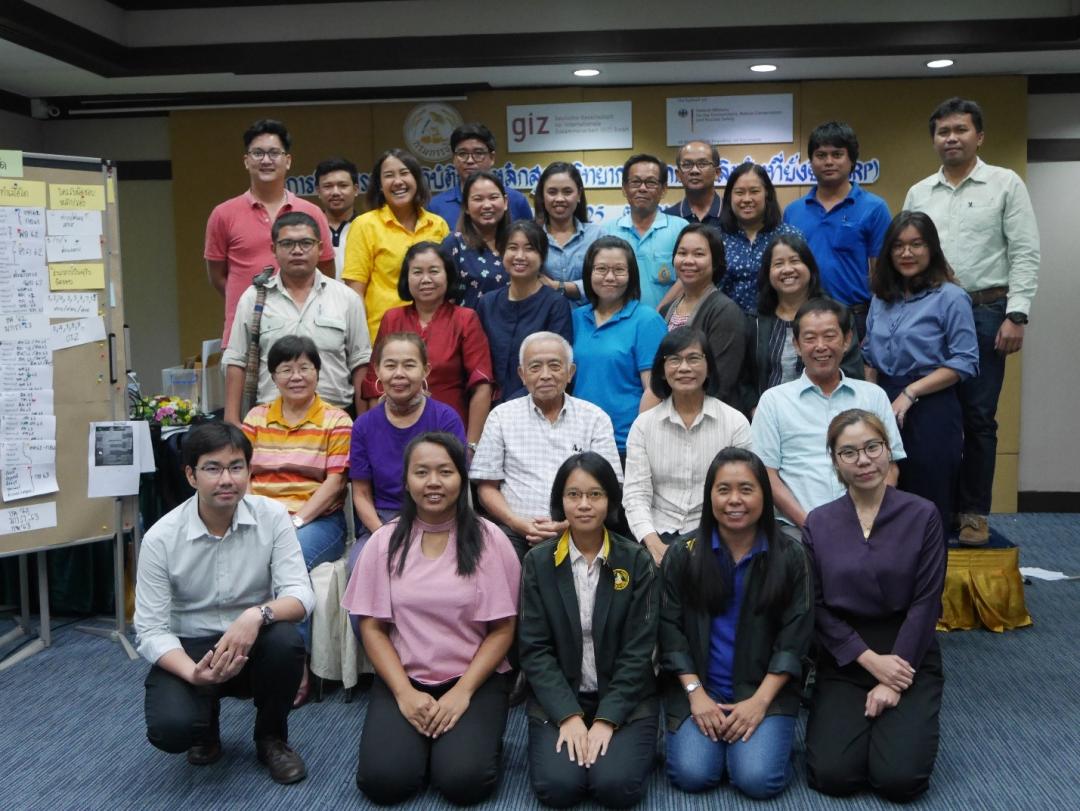Thai Rice NAMA, funded by the NAMA Facility, is a joint project with the Thai government to encourage local small-holder farmers to implement low-emission rice farming and make mitigation services and technologies accessible to farmers.
Does your technical support for climate change mitigation technologies also create a social impact on smallholder farmers?
Santikorn: Yes. When we promote mitigation technologies, farmers fill in farm activity data in a kind of “farm diary” to help us measure impacts. These technologies can increase rice yield and productivity and provide a higher quality rice which is sold at a higher price. Farmers who practice sustainable and low-emission rice farming according to Sustainable Rice Platform standards produce “SRP” rice, which is purchased by international and domestic sourcing companies. We have a set of standards with criteria and scoring sheets and the farmers who meet the criteria of the standards will get an extra bonus as a top-up.
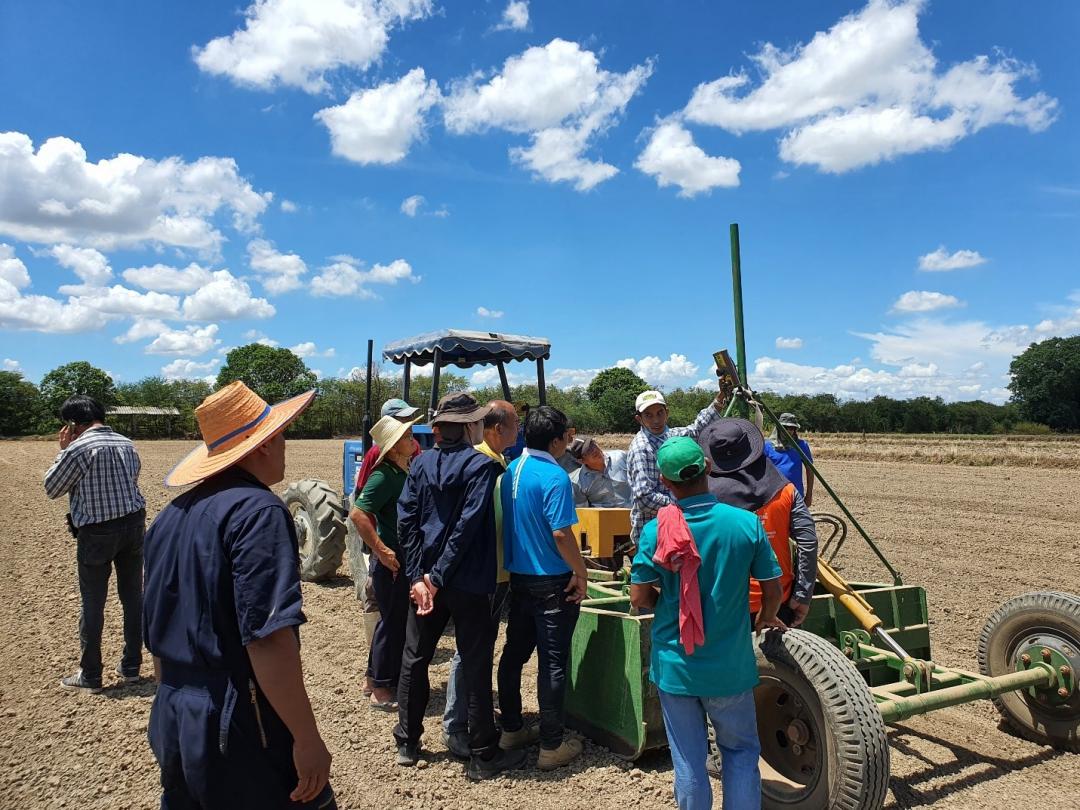
How do you convince smallholder farmers to embrace these new lower emission technologies and what has the process been?
Santikorn: We can convince them by using economics and socio-environmental benefits. At the end of the day it comes down to how much money is left in their pockets. We have demonstrations and we also document all the data. We show them that if they follow all our practices, they will have more income. Apart from reducing their greenhouse emissions, the new technology increases productivity and lowers the cost of production. The Thai rice NAMA project also has a financial mechanism for farmers to change their practices to lower emission technologies through a revolving fund. We pay for the costs of the service on behalf of farmers, the farmers use the service and then they pay back the fund with zero percent interest.
Tobias: The switch to the climate smart technologies we are promoting is costly for the farmers. It needs some sort of initial investment. We kick started the investment through this revolving fund within the NAMA facility.
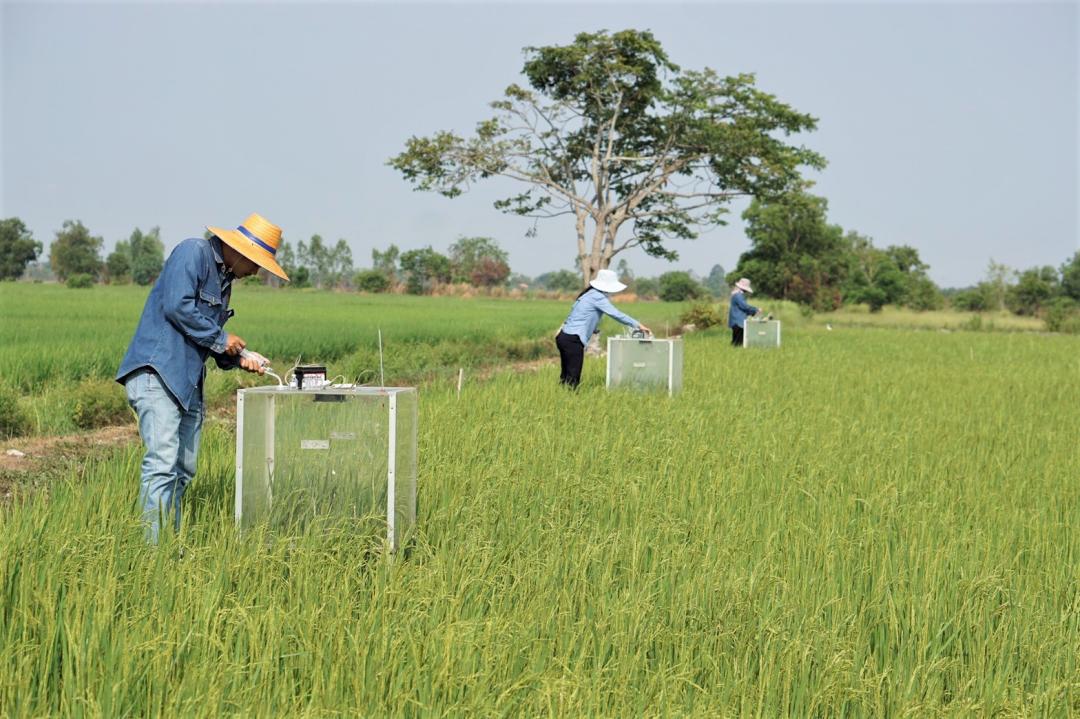
Are you partnering with inclusive business as intermediaries or to help provide markets?
Tobias: We are seeing interest by off takers or by private companies that realise that climate change also threatens their own supply chain and their own sourcing of certain agricultural goods. And we are partnering with a number of companies through public private partnerships. Such companies can engage in projects to promote sustainable rice farming both by increasing their sourcing of sustainably produced rice, while also aiming to promote sustainable rice farming practices for farmers, which will in turn improve livelihoods, which also serves to increase the farmers’ resilience.
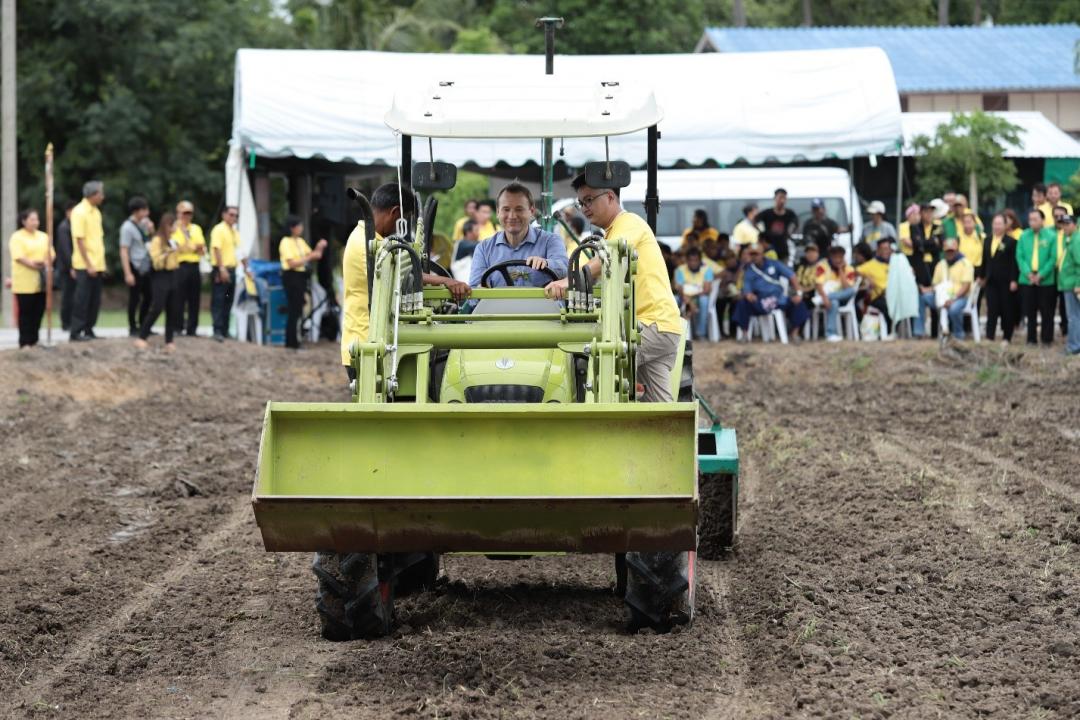
Are you also working with smaller companies whose business models directly involve benefits to smallholder farmers?
Santikorn: We also work with domestic companies. The trend of sustainable rice is now rising globally with demand in the European market, the U.S. market and in Thailand. So, it's a kind of a win-win situation for these companies. They have also co-invested in sustainable rice and they have their own staff going to the field with our GIZ staff, alongside government staff to provide training to farmers. Tobias: The service providers within the Thai rice NAMA project are mostly local companies as well. We also need to engage with local companies that are actually on the ground, plus the farmers that are able to provide those services. For example, the straw stubble management of rice straw residue is overseen by local companies. We are also well connected with the local farmer groups.
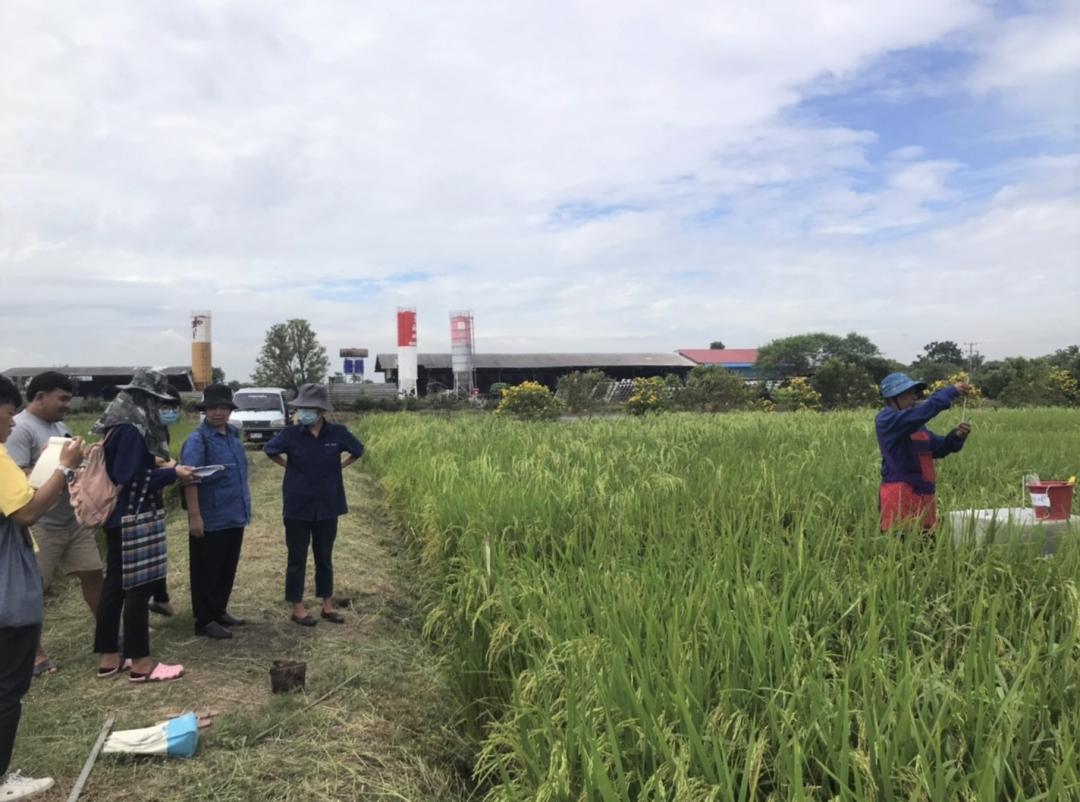
Do you include these companies in your training and capacity-building work?
Santikorn: Yes, we have to discuss with the companies how much rice they want to purchase in each season, and then we identify the farming area which is closer to the international company they are working with. We also develop the training guidelines and materials, working together with private companies. When we go to the field, it is not only GIZ staff, but it is GIZ staff together with government staff and private company staff. We are going to promote sustainable rice, but it is not only for the benefit of the private companies, it is for the benefit of the farmers. We always welcome any private company interested in promoting sustainable rice for the benefit of the farmers.
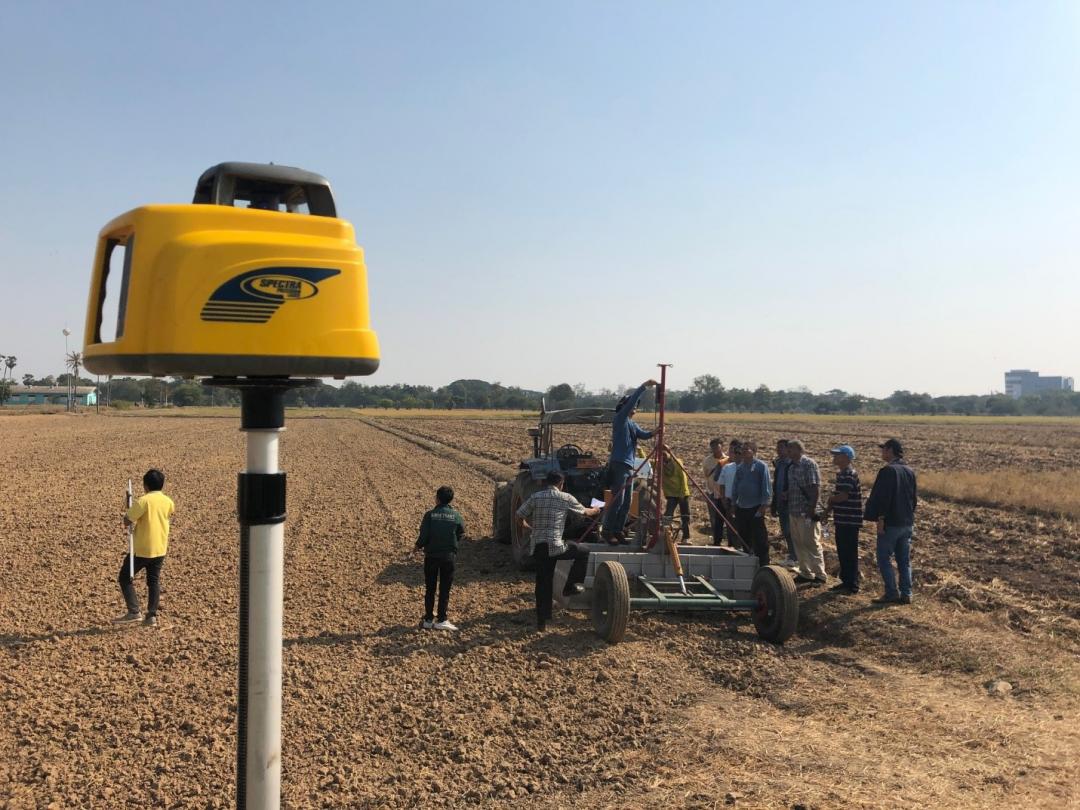
I also wanted to ask you about resilience and adaptation, as this is a main goal of the UN Climate change conferences really to increase resilience. What measures are you taking to increase the resilience and adaptation to climate change of these rice farming communities that you work with?
Santikorn: One of the worst climate threats to farmers is drought. There may be in two to three years not enough water to do rice farming. In a good year, we could do two cropping seasons per year. But right now, it’s only one cropping period or season per year. So, we promote a technique called AWD -- Alternate Wetting Drying -- to reduce the water used in rice farming by 50 per cent. Another method is leveling, where the rice field has been leveled to maximize water management. We are also working with soil improvement, using soil testing to determine the optimum amount of fertilizer we need to apply. We are also encouraging the use of straw bales through straw stubble management. We promote the use of straw bales to encourage farmers to take the straw out and sell it instead of burning it. Also, there are some recent developments from the government like the use of inter and mixed cropping. Lastly, the crop insurance scheme in Thailand is going very well, but we are working to improve the claim process because sometimes the payments to farmers affected by natural disasters is too slow.
Tobias: All of these sustainable rice farming practices are cross-cutting; while they help to mitigate greenhouse gases, they can also serve to increase the resilience of farmers against climate threats. At the COP 26 adaptation will be a major issue, and it will be particularly an issue for agriculture in the South East Asian context, where we see a lot of smallholder farmers that are most vulnerable to the impacts of climate change. This will be a factor that might gain even more prominence in the future. There are also new projects coming up, working regionally even on insurance questions, linking climate risk financing, crop-insurance and sustainability standards in the entire ASEAN region. So that is also another aspect that we are strongly working on.
